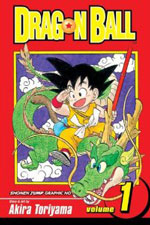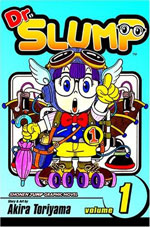 Last December, we discussed a law that had just been passed in Tokyo to limit access by minors to manga and anime showing certain sexual acts. Now the law has gone into effect: what’s changed? What’s covered and what isn’t? What effect does the law have on what’s published, or what’s sold in other parts of Japan? This week Mulele and Tim talk to perhaps the most authoritative English-speaking voice on this topic, Dan Kanemitsu a manga translator who has helped to bring international attention to Tokyo’s Bill 156. A very educational discussion about Japan, child porn, and manga publishing ensues.
Last December, we discussed a law that had just been passed in Tokyo to limit access by minors to manga and anime showing certain sexual acts. Now the law has gone into effect: what’s changed? What’s covered and what isn’t? What effect does the law have on what’s published, or what’s sold in other parts of Japan? This week Mulele and Tim talk to perhaps the most authoritative English-speaking voice on this topic, Dan Kanemitsu a manga translator who has helped to bring international attention to Tokyo’s Bill 156. A very educational discussion about Japan, child porn, and manga publishing ensues.
U.S. Embassy in Japan on child pornography and manga/anime: Spring 2008
Pornography, Rape, and Sex Crimes in Japan by Milton Diamond and Ayako Uchiyama
Japan Refuses to Pass Legislation Banning Child Pornography Possession (mediaite.com – 5/14/10)
Podcast: Play in new window | Download

 Planning a murder that you think will prevent future murders? That’s the premise — or, at least, one of the premises — of Monster, Naoki Urasawa’s 18-volume series. Set in Germany, the series focuses on the unintended consequences of Dr. Kenzo Tenma’s good deed; he saved the life of a boy who turned out to be a remorseless killer. Tim and guest reviewer Natalie Nourigat discuss.
Planning a murder that you think will prevent future murders? That’s the premise — or, at least, one of the premises — of Monster, Naoki Urasawa’s 18-volume series. Set in Germany, the series focuses on the unintended consequences of Dr. Kenzo Tenma’s good deed; he saved the life of a boy who turned out to be a remorseless killer. Tim and guest reviewer Natalie Nourigat discuss. While the American comics publishers, and publishers in general, are making more and more content available digitally, the situation is quite different here in Japan. The traditional manga publishers — Shueisha, Kodansha, and Shogakukan — have been very slow to embrace the digital market.
While the American comics publishers, and publishers in general, are making more and more content available digitally, the situation is quite different here in Japan. The traditional manga publishers — Shueisha, Kodansha, and Shogakukan — have been very slow to embrace the digital market. When last we checked in with
When last we checked in with  The Tokyo Metropolitan Assembly recently passed a law that
The Tokyo Metropolitan Assembly recently passed a law that  Though the highly influential manga series, and resulting TV show, are known for non-stop action and fighting, Dragon Ball started out as a comedy strip reminiscent of Akira Toriyama’s early work,
Though the highly influential manga series, and resulting TV show, are known for non-stop action and fighting, Dragon Ball started out as a comedy strip reminiscent of Akira Toriyama’s early work,  At last the time has come! As we promised a few weeks back, this week Tim, Kumar, and Mulele critique comics by listeners:
At last the time has come! As we promised a few weeks back, this week Tim, Kumar, and Mulele critique comics by listeners: FLASHBACK! In our August 18, 2008 episode, Tim and Kumar discuss gag manga! We cover two hilarious Japanese comics series, “Dr. Slump” by Akira Toriyama, and “Cromartie High School” by Eiji Nonaka.
FLASHBACK! In our August 18, 2008 episode, Tim and Kumar discuss gag manga! We cover two hilarious Japanese comics series, “Dr. Slump” by Akira Toriyama, and “Cromartie High School” by Eiji Nonaka. Thinking of looking for work as a comics translator? What issues are you likely to face in doing the work? Our very own Kumar, translator of dozens of Japanese comics for Dark Horse, talks to Tim about translating puns, accents, sound effects, song lyrics, and more.
Thinking of looking for work as a comics translator? What issues are you likely to face in doing the work? Our very own Kumar, translator of dozens of Japanese comics for Dark Horse, talks to Tim about translating puns, accents, sound effects, song lyrics, and more.